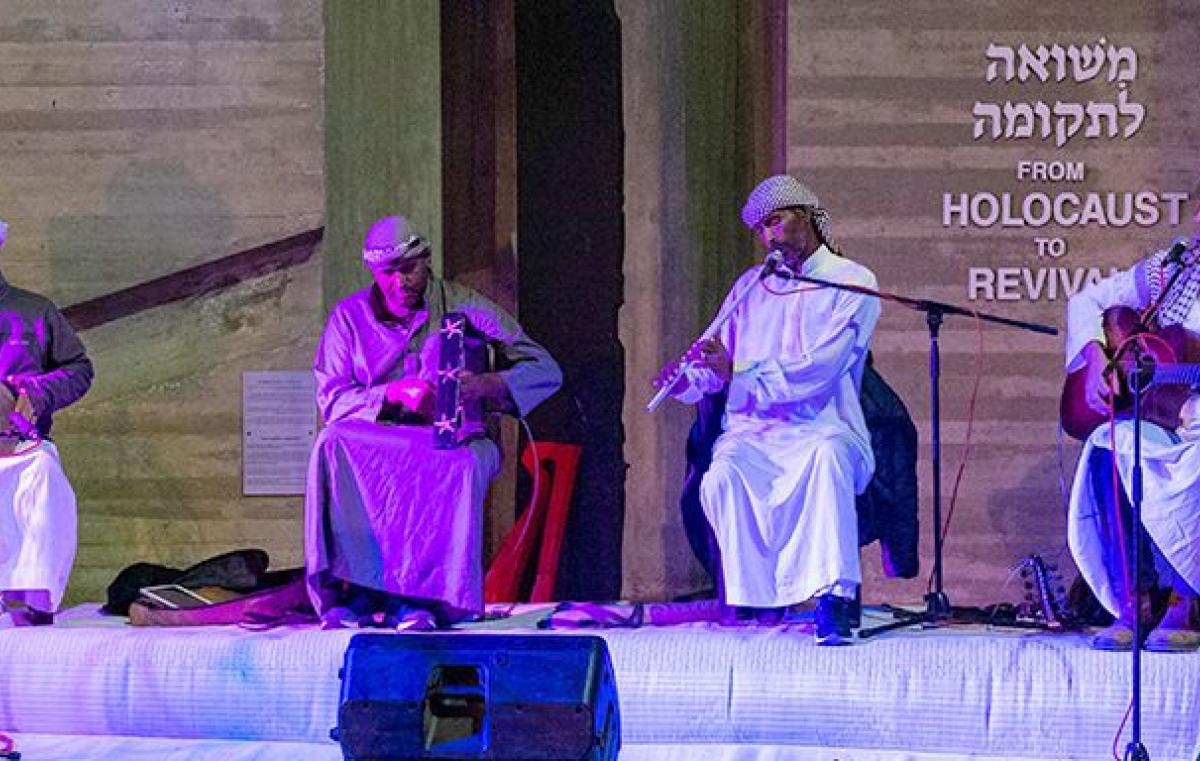A Course on the Subject of the Holocaust for Teachers in the Bedouin Society
The unique course is a joint project of the Israeli Congress that operates in the Faculty of Law, the From Holocaust to Revival Museum in Kibbutz Yad Mordechai, Menomadin Foundation, and A New Dawn in the Negev organization

Due to the painful history of the relations between the State of Israel and the Bedouins and the often negative interactions between the Israeli government and this community, recruitment for the course was challenging.
Participants in the course, male and female teachers ages 30-50, said that they learned a lot of new information during the course, thereby making the subject of the Holocaust very meaningful for them. Ibrahim Elkraaan from Kusife, a high school teacher who specializes in math and special education, said that in the Bedouin society the Holocaust is not a subject that is talked about at all. "Today, after going through the course, I would like my children to know more about the Holocaust. Nevertheless, I would expect from a people who have gone through the Holocaust and felt discrimination on their own flesh – to behave differently," he added.
The course was held in cooperation with a project of the Israeli Congress that operates in the Faculty of Law in Bar Ilan University, the From Holocaust to Revival Museum in Kibbutz Yad Mordechai, Menomadin Foundation, and A New Dawn in the Negev organization. Gilad Weiner, Israeli Congress Director, said that the participants of the course are "brave women and men, who have taken it upon themselves to lead a change in the way the Holocaust is taught and told about in the Bedouin society in the Negev – out of an understanding that this change can be an important step in promoting a joint life in the region."
The course and the involvement of the Israeli Congress in it are part of the activity of Council on Matters of Jews and Arabs that the Congress operates. Dr. Oriana Aboud Armaly, one of the mediators leading the Council, assisted the participants in dealing with the severe negative pressure placed on them from their community. According to Weiner, this is an example of how, even in these difficult times, the Congress is able to bring people together to learn about complex and relevant issues.